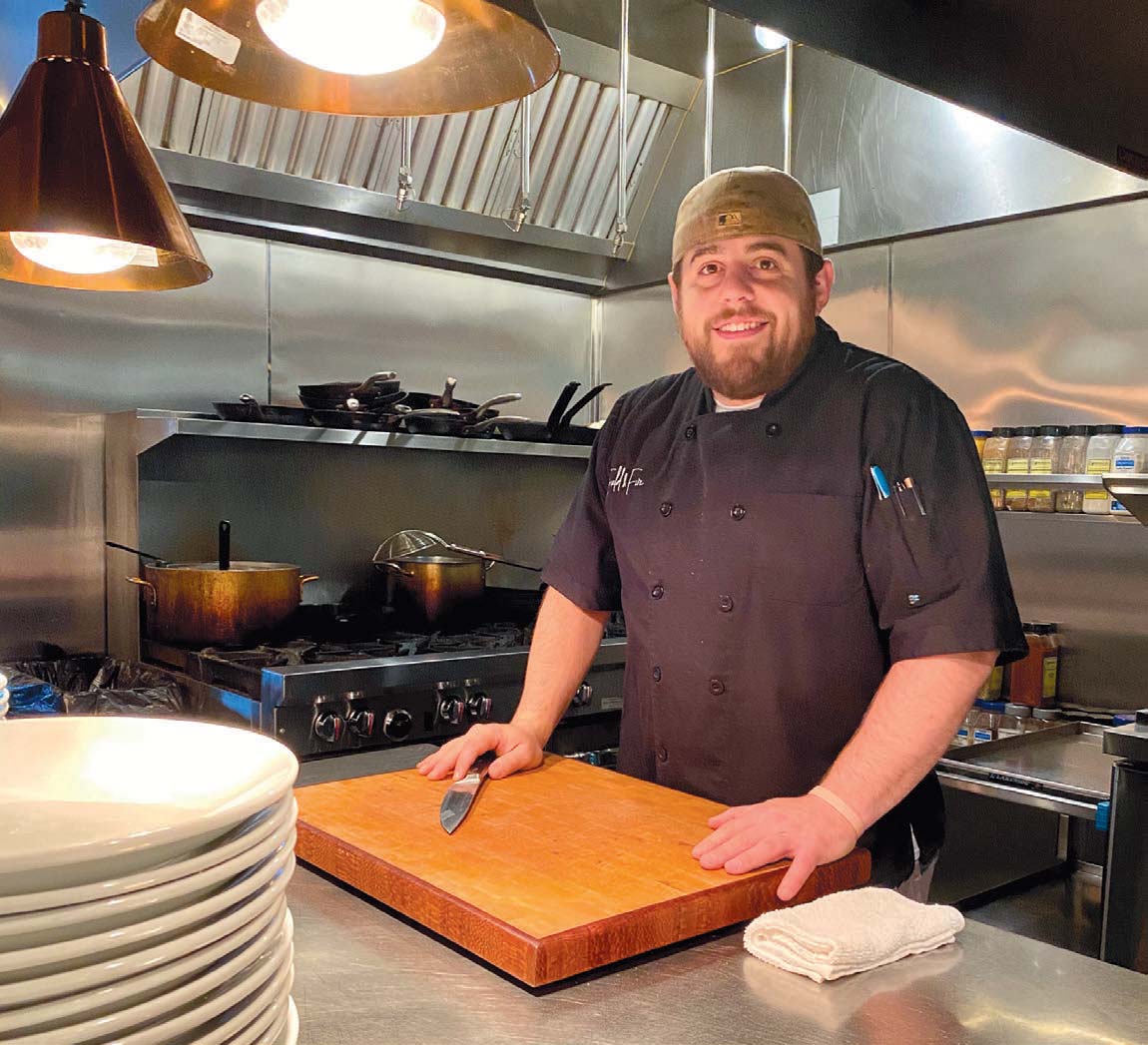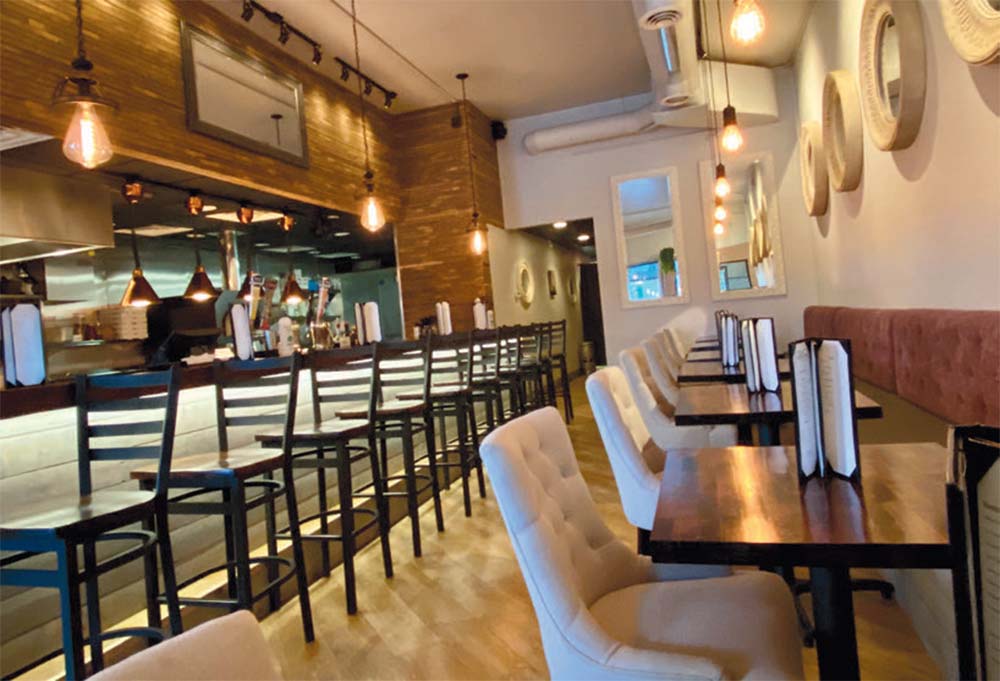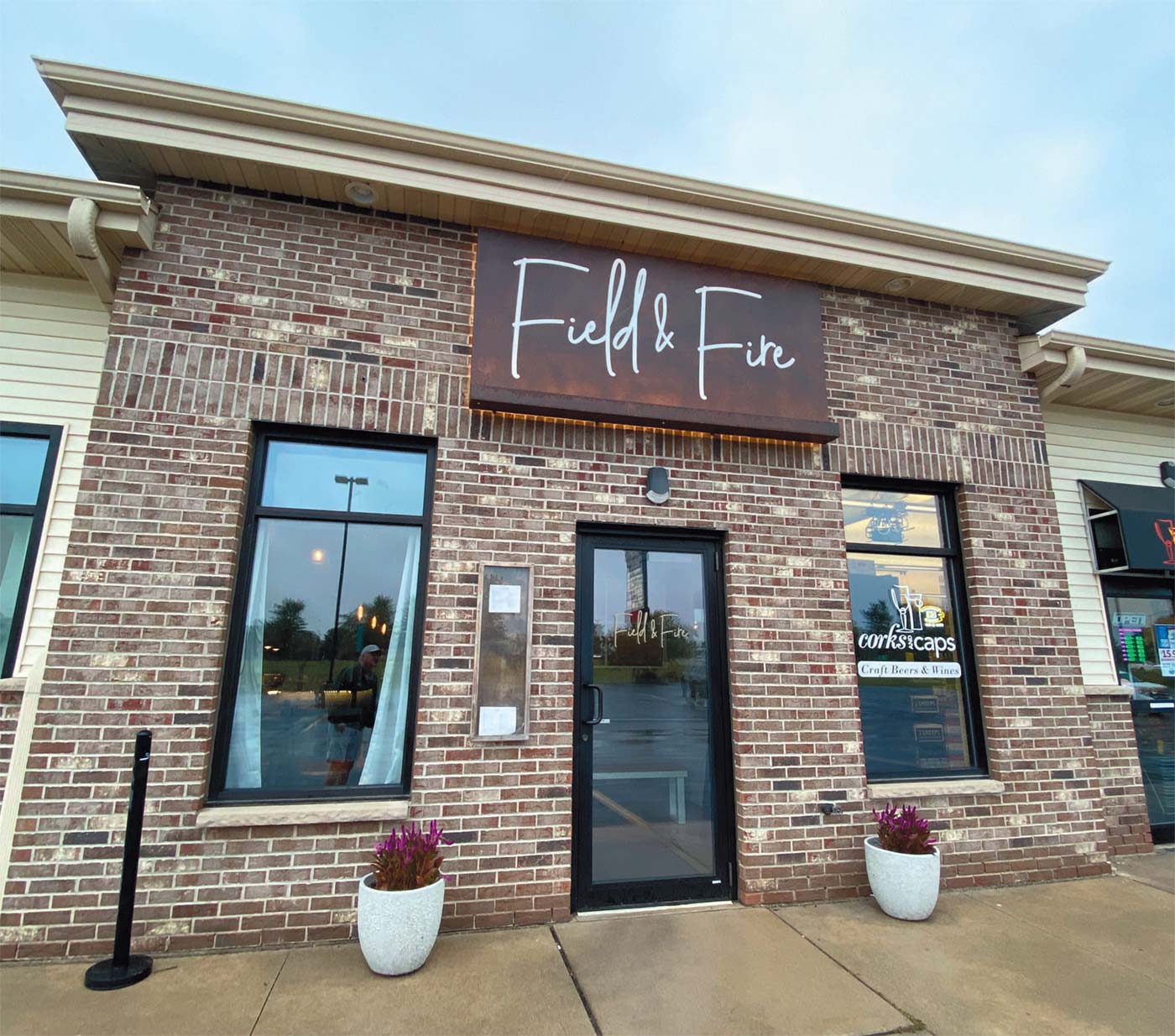Changing Course came Natural for Field & Fire Chef
From fine dining environments in Northeast Wisconsin to the Food Network’s Cutthroat Kitchen, you wouldn’t guess that Chef Ryan Sherman didn’t intend on a career in the culinary arts. But sometimes the best of things find us when we aren’t looking.
Originally pursuing a life as a research scientist, Sherman studied chemistry and physics at the University of Wisconsin-Eau Claire. He eventually found himself on an alternate path in the kitchen, and over time, along with Jordan Hereford, Field & Fire in Greenville was born.
Hereford is also the owner of Ambassador in Appleton and The Chubby Seagull in Sherwood.
As all businesses had to make shifts in the uncharted waters of a pandemic, Sherman remembers the exact moment they learned they had to change everything.
“Oh, Covid. March 17, 2020, at 1:17 p.m. was the minute I learned of the statewide shutdown,” he says. “I didn't know what to think. But by 2 p.m. we had to layoff our entire staff and had no idea how an establishment built around the experience of an open kitchen and watching your food being made was going to survive. Covid seemed like it could be the death of Field & Fire if we didn’t pivot immediately. But we made it. Our current menu is more takeout-friendly. We are still standing.”
“While I initially thought of the experience as a free trip to L.A. and a break from the daily grind of work, I see now how it was a once-in-a-lifetime opportunity.”
– Chef Ryan Sherman on his Food Network Cutthroat Kitchen experience

Ryan Sherman in the Field & Fire kitchen. His decision to switch from a career as a research scientist into the culinary arts landed him some national recognition after winning Food Networks’ Cutthroat Kitchen. Photo by Leslie Gast
Keeping menu efforts as seasonal as possible at Field & Fire is the goal, but living in the north can leave little room for exploration come winter. In the colder months, Sherman and his team take to their personal experiences or family heritage for menu inspiration.
“What we’re reading can also have an impact on our menu or the recipes we’d like to explore,” says Sherman. “If I’m reading a history book about France in the 1800s, I may take influences from that time period into the kitchen.”
In an industry where just about everything has been done before, showcasing an individual interpretation of a dish is something that can be accomplished, Sherman says. It’s an involved process that with lots of trial and error.
“We’re currently featuring fall dishes and the traditional growing season is wrapping up, so we’re about to see a lot of ingredients like fall lettuce, potatoes, and Brussels sprouts.”
Aiming for warming dishes in the winter, Sherman and his team like to use heavier proteins such as lamb and of course, tons of root vegetables.
“We do work with local farmers and butchers when we can, and we usually use these ingredients in weekly features, albeit on a wood-fired pizza or a nice starter,” says Sherman. “It does become trickier to do so as the frost comes in and the ground starts to freeze.”

A look inside Field & Fire. Photo by Leslie Gast.
In 2016, while working as a chef at Spats Food & Spirits in Appleton, Sherman landed himself a spot on the Food Network’s Cutthroat Kitchen. He was victorious in the cooking show competition and notes how the adventure has subtly shaped his perspective.
“While I initially thought of the experience as a free trip to L.A. and a break from the daily grind of work, I see now how it was a once-in-a-lifetime opportunity. I met chefs from all over the country and Alton Brown, who is a true genius of food science.”
Sherman enjoyed exploring L.A. and seeing firsthand how the industry operates on the West Coast, but he also gained some valuable life pointers from his time on the show.
“I saw that anything was possible and to keep trying no matter what hardships you endure. The whole premise of the show was to make it nearly impossible to cook a dish. But if there’s a will, there’s a way.”
The flipside to this token of wisdom is the egocentrism of the industry — which is undeniably “cutthroat,” Sherman says.
“Due to avenues like the Food Network and social media, chefs are seen as these rock stars. It’s challenging to not get caught up in that, but we have to remember that the restaurant was built as a place for community to come together to celebrate the farmers, the butchers and the bakers. It’s something I’ve struggled with. But we should all be supporting one another the best we can, not tearing each other down. It takes continual work.”





